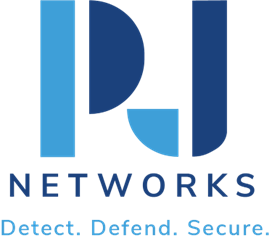Strengthen Your Cybersecurity Posture: Essential Tips for Businesses
In today’s digital age, cybersecurity is more critical than ever. Whether you’re managing a small startup or a well-established corporation, keeping your business secure is paramount. In this blog, we’re going to break down some essential cybersecurity tips, ensuring you understand how to protect your assets and reputation.
Understanding Cybersecurity Threats
Before we dive into solutions, it’s essential to understand what threats we’re dealing with. The cyber world is full of potential pitfalls, and staying informed is half the battle.
- Phishing Attacks: Targets through email or messages pretending to be from trusted sources.
- Malware: Malicious software that can damage or disable your systems.
- Ransomware: Blocks access to data until a ransom is paid.
- Insider Threats: Risks from employees misusing access to your data.
Knowing these threats can help you formulate an effective defense strategy.
Tips to Boost Your Cybersecurity
Now that you’re familiar with potential cyber threats, let’s discuss how you can protect your business. Here are some simple yet effective tips:
1. Educate Your Employees
Your employees are your first line of defense. Make sure they understand cybersecurity basics:
- Conduct regular training sessions on recognizing phishing scams.
- Encourage strong password practices.
- Implement a robust policy on data privacy and usage.
2. Use Strong Passwords and Two-Factor Authentication
Password management is crucial.
- Encourage the use of complex, unique passwords.
- Implement two-factor authentication (2FA) wherever possible.
Remember, a strong password policy can deter would-be attackers.
3. Regularly Update Software and Systems
Keeping your systems updated is a simple yet powerful way to ward off threats.
- Ensure all software is up-to-date with the latest patches.
- Automate updates to ensure nothing is missed.
4. Backup Your Data
Backups are your safety net.
- Regularly back up all critical data.
- Consider cloud solutions for off-site backup security.
5. Develop an Incident Response Plan
No system is impervious to attack. Be prepared.
- Create a detailed, step-by-step incident response plan.
- Regularly test and update the plan to ensure effectiveness.
Network Security: A Must-Do
Securing your network can prevent unauthorized access:
- Install a reliable firewall and antivirus software.
- Use a Virtual Private Network (VPN) for secure remote connectivity.
With these measures, you can reduce risks associated with network vulnerabilities.
Encrypt Sensitive Data
Data encryption is essential for protecting sensitive information from prying eyes. Whether it’s customer data or company secrets, encryption can be a powerful tool:
- Implement end-to-end encryption for all communications.
- Educate employees on the importance of data encryption.
This could be the difference between a security breach and a secure transaction.
SEO Tips for Cybersecurity Blogging
While focusing on cybersecurity, don’t forget about SEO! Let’s ensure your valuable insights reach as many readers as possible:
- Use relevant keywords naturally throughout the content.
- Include subheadings and lists for easy readability.
- Consistently update your blog with fresh, original content.
By optimizing for search engines, your message on cybersecurity can reach a broader audience.
Conclusion
Ensuring robust cybersecurity is no small feat. However, by following these essential tips, you can significantly reduce the risk to your business. Remember, it’s not just about protecting data; it’s about ensuring trust and credibility in the digital marketplace. Stay informed, stay protected, and don’t forget to validate the JSON structures to keep everything in check! Your business’s future depends on it.
By maintaining vigilance and using these strategies, you strengthen your cybersecurity and ensure your business’s success in the digital realm.
